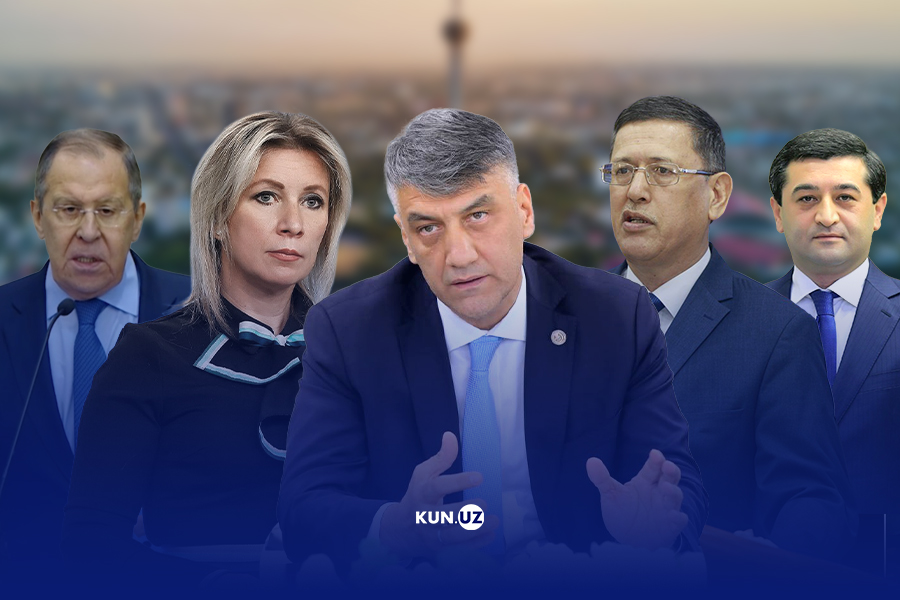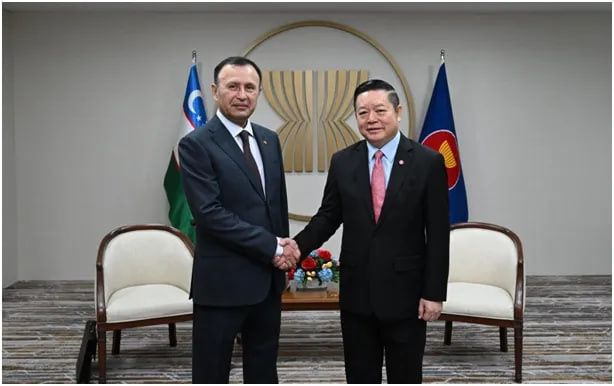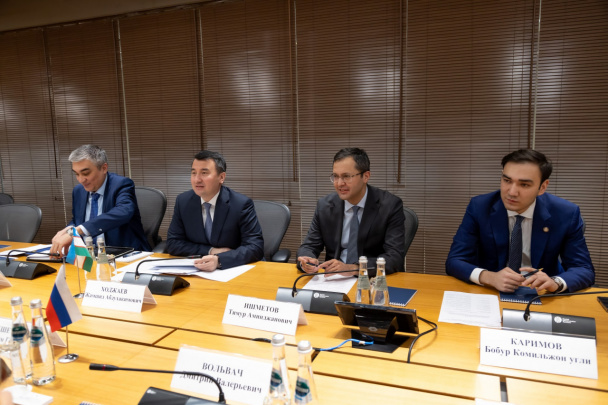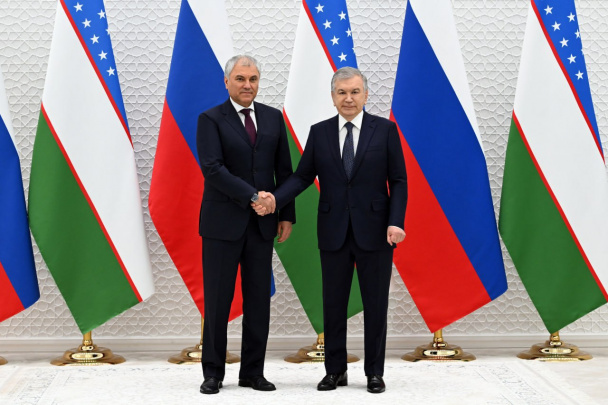Tashkent school incident sparks diplomatic tensions between Uzbekistan and Russia
A recent incident in a Tashkent school, initially a dispute between a teacher and a student, escalated into a full-blown diplomatic situation involving Uzbekistan and Russia. The conflict began over a language issue, ultimately drawing commentary from high-ranking officials in both countries.

Incident in Tashkent School
The controversy began on September 25 when a video emerged on social media showing a Russian language teacher at School No. 188 in Tashkent physically assaulting a student. In the footage, the teacher is seen pulling the student's ear and slapping him in the face. Tashkent’s Department of Preschool and School Education confirmed the incident occurred on September 23 during a Russian language class in the 6th grade. Notably, it was the teacher’s first day on the job, and she had not yet been officially hired.
According to reports, the student had spoken back to the teacher, leading to an argument. The teacher then physically punished the student by pulling him out of his seat and slapping him. Authorities later confirmed that the student did not sustain any serious injuries. The student’s parents, however, reported the case to law enforcement, prompting an investigation.
Uzbekistan’s Children's Ombudsman, Surayyo Rahmonova, condemned the teacher’s actions, calling for the dismissal and prosecution of individuals involved in physical violence against children in schools.
The Situation Escalates
On September 25, a Telegram channel with a large Russian audience shared further details, alleging that the incident stemmed from the student's request for the lesson to be conducted in Russian. The student's parents later claimed that the teacher expressed no remorse and reportedly remarked that "Uzbekistan is for Uzbeks, and others should leave."
This revelation quickly spread across Russian media, drawing a response from Russia’s Foreign Ministry spokesperson, Maria Zakharova. During a briefing, Zakharova stated that Russia had formally requested an explanation from Uzbekistan regarding the incident, expressing concern over what appeared to be an ethnic and linguistic dispute. She emphasized that "there is no place for hostility, especially over language issues, in the friendly relations between our two nations."
Uzbekistan's Response
Zakharova's comments sparked a wave of public backlash in Uzbekistan, where many saw it as interference in the country’s internal affairs. On September 26, Alisher Kadirov, leader of the Milliy Tiklanish party and Deputy Speaker of Uzbekistan’s Legislative Chamber, responded sharply. He reminded Russia that the child’s rights were violated within Uzbekistan, and any legal consequences would be handled according to Uzbek law. He criticized the Russian government for interfering in what he deemed an internal matter.
Other prominent figures also weighed in, with education expert Komil Jalilov calling Zakharova’s remarks a “masterclass in creating political issues” and journalist Otabek Bakirov questioning whether Uzbek authorities would firmly assert that such matters are strictly domestic.
Even before Kadirov's remarks, Sherzodkhon Kudratkhoja, head of the National Association of Electronic Mass Media and rector of Journalism and Mass Communications University, had expressed his discontent. He stressed that Uzbekistan, as a sovereign state, would not tolerate external interference, especially over what he considered a local incident.
Minhojiddin Mirzo, the First Deputy Chairman of the Writers' Union, has stated that Maria Zakharova should apologize to Uzbekistan.
“What surprised me is that the incident occurred in Uzbekistan, with both the teacher and the student being citizens of Uzbekistan. Why should we provide an explanation to Moscow for an incident that took place in an independent state?
Do they still consider Uzbekistan to be one of their provinces? Several official and unofficial individuals have called our sovereignty into question and belittled our history, and we have expressed our concern. They are treating migrants as they see fit. As time goes on, this is only escalating.
It is clearly evident that this constitutes interference in Uzbekistan’s internal affairs and a gross violation of international law!
Maria Zakharova should apologize to Uzbekistan for her remarks! The Russian Foreign Ministry should provide an explanation for such disrespect!” stated Minhojiddin Mirzo in a statement published on the official channel of the Writers' Union.
Subsequent Developments
The teacher involved in the assault has been linked to another altercation on September 24 at a different school in Tashkent, where she allegedly used physical force against a staff member during a dispute. She also resisted orders from law enforcement officers, leading to her arrest. On September 25, the Yashnobod District Court sentenced her to seven days of administrative detention and fined her 2.4 million UZS.
Historical Context
This is not the first time Zakharova has commented on language-related issues in Uzbekistan. In May 2020, she expressed concerns about a draft law in Uzbekistan that introduced penalties for officials failing to conduct state business in the Uzbek language. Her comments were met with strong public opposition in Uzbekistan, leading to a formal statement from the Uzbek Foreign Ministry that declared language policies to be the country’s internal matter.
MFA’s Stance
On September 27, Uzbekistan’s Foreign Minister, Bakhtiyor Saidov, met with Russian Foreign Minister Sergey Lavrov in the United States. During the meeting, both sides emphasized the importance of respecting the principle of non-interference in each other's internal affairs.
It is important to note that if the law approved by the Senate of Oliy Majlis on September 20, 2024, comes into force, foreign citizens who make statements against the state sovereignty and security of Uzbekistan will be prohibited from entering the country. Furthermore, those already in Uzbekistan may face deportation.
Related News

19:23 / 17.03.2025
Uzbekistan’s ambassador officially accredited to ASEAN

17:05 / 15.03.2025
Uzbekistan engages in WTO accession talks with Russia

19:32 / 14.03.2025
President Mirziyoyev holds talks with Russian State Duma Speaker

10:12 / 14.03.2025



